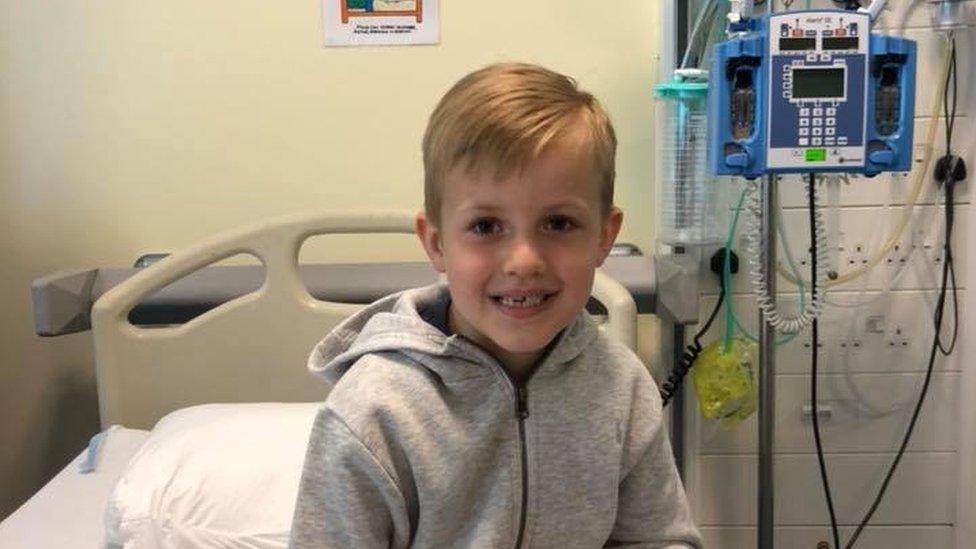Bone marrow donation lessons 'should be taught in schools'
- Published
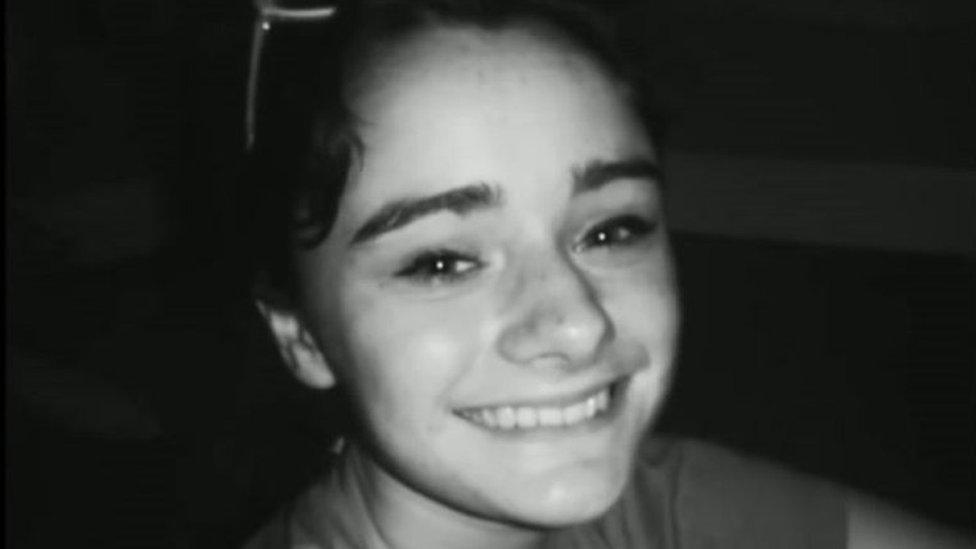
Emily Clark campaigned to raise awareness about the stem cell register even before she was diagnosed with blood cancer
The family of an 18-year-old who died of blood cancer want lessons on bone marrow donation to be included in the new Welsh curriculum.
Emily Clark, from Cwmbran, Torfaen, campaigned to raise awareness of the stem cell register, external even before she was diagnosed with Non-Hodgkin Lymphoma, external.
Her family want teachers to deliver lessons on the subject to boost donors.
The Welsh Government said the draft curriculum would allow children to learn a "wide range of health matters".
Thousands of transplant recipients will attend the British Transplant Games this week, which is being held in Wales for the first time in decades.
Emily, whose sister Holly described her as "inspirational", died after her bone marrow transplant failed in 2016 and their mother Donna thinks lives can be saved in the future.
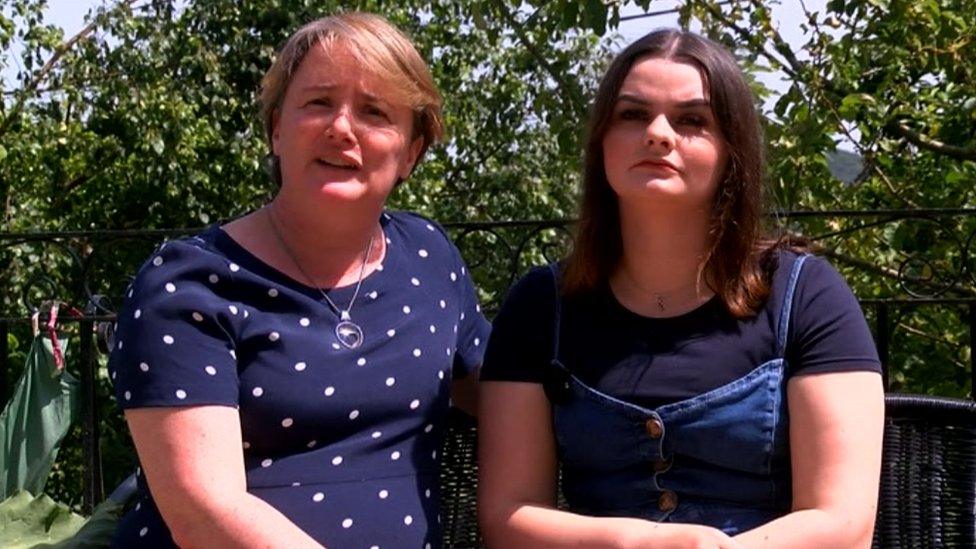
Emily's mother Donna and sister Holly think education about bone marrow donation can save lives
"The national curriculum would be an ideal way of targeting those 16-year-olds as they hit the age to be able to join the register - education is the key," Donna said.
"You hear a lot about the postcode lottery accessing drugs. This is a bigger issue - you've got to find that one person who can give you a cancer-free life and if they're not on the register you've got no chance."
Both Donna and Holly will take part in the British Transplant Games opening in Newport on Thursday.
Charity Anthony Nolan Trust, external said patient survival rates were better if donors were under 30.
Wales was the first nation in the UK to operate a system of presumed consent, where people are regarded as having consented to organ donation unless they have opted out.
A Welsh Government spokesman said: "We provide an online organ donation teaching pack for schools and have established a programme of speakers to visit schools to talk about organ donation.
"Teachers will also be able to focus on a wide range of health matters within health and wellbeing - one of six areas of learning and experience in the draft curriculum."
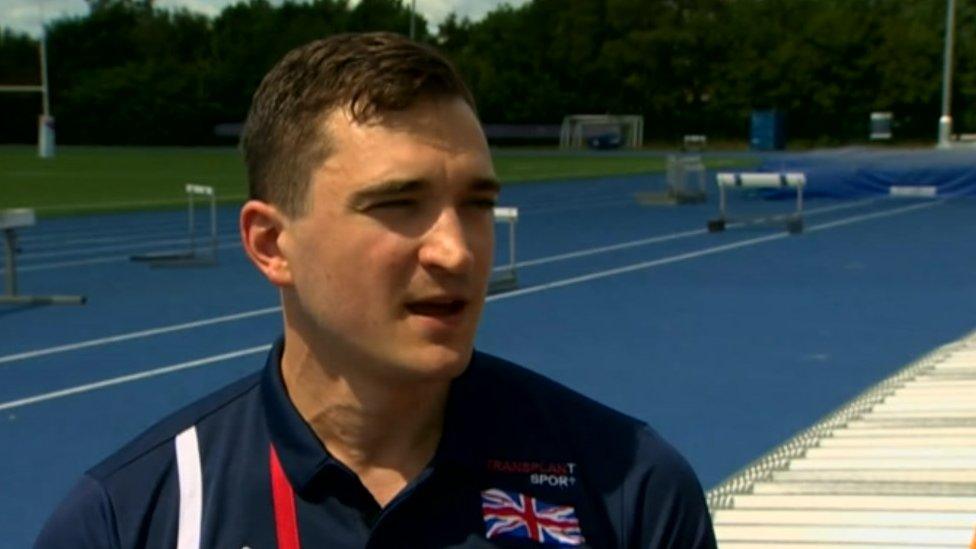
Lewis Evans was diagnosed with end-stage renal failure
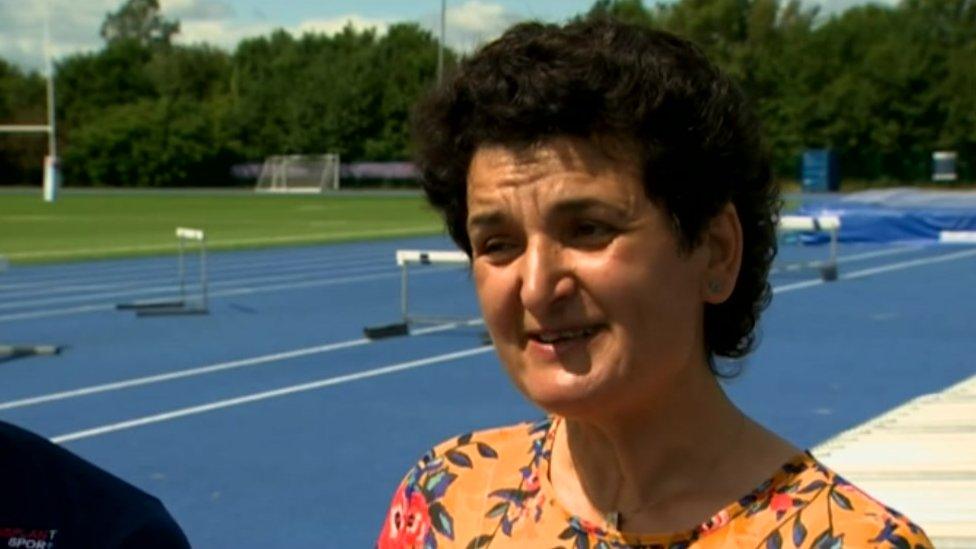
His mother Gay Evans donated her kidney and saved her son's life
Lewis Evans, from Tregaron, Ceredigion, won gold in the 100m and 200m at the UK and European transplant games last year.
At his first hospital appointment, the 26-year-old was told his kidneys were about to stop working and he had end-stage renal failure.
"I just thought: 'Give me the medication and I'll be out'. They said 'no, this is serious, we need to call somebody'," he said.
Lewis's sister and mother were both a match, but his mother Gay Evans said she did not want both her children to be operated on at the same time, so donated her kidney.
"It was a second chance of life from my mam - it was very emotional," Lewis added.
- Published9 December 2018
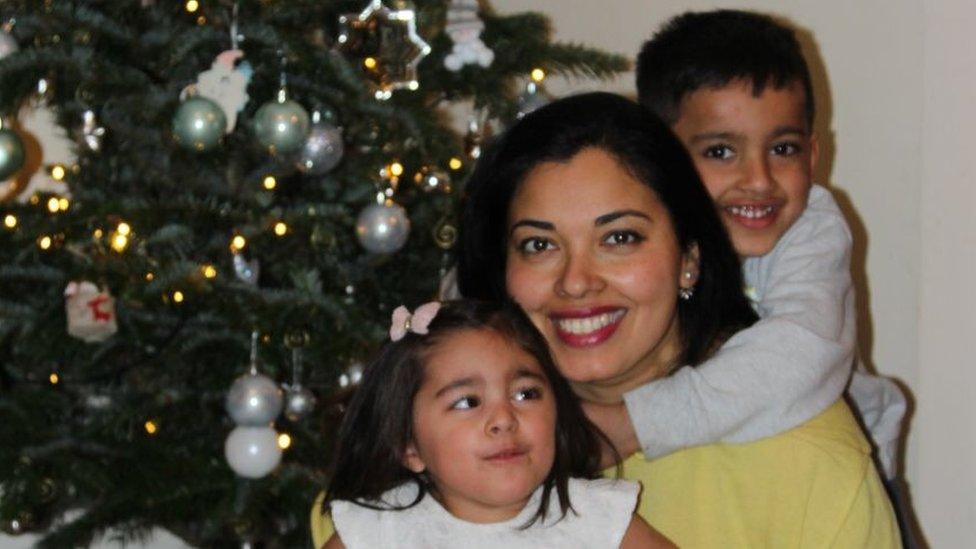
- Published29 June 2019
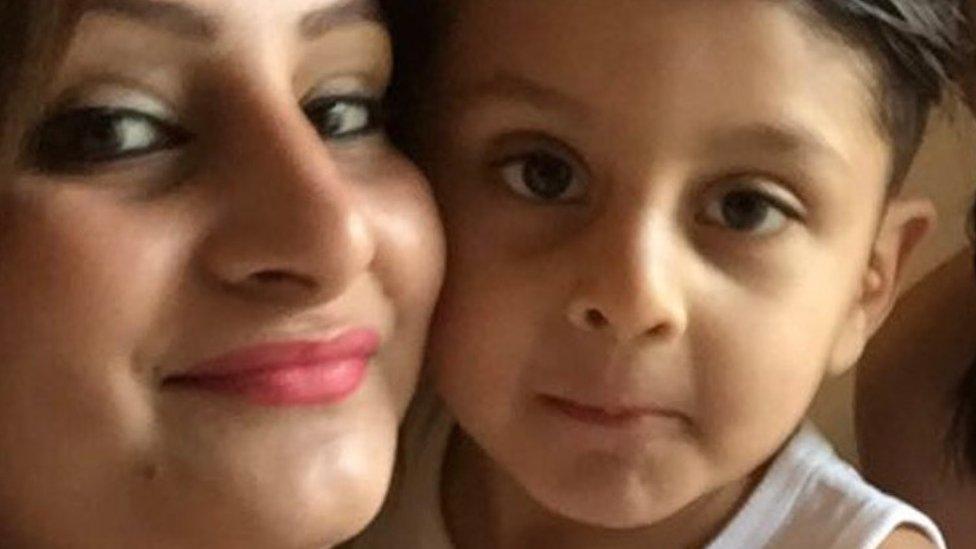
- Published12 May 2019
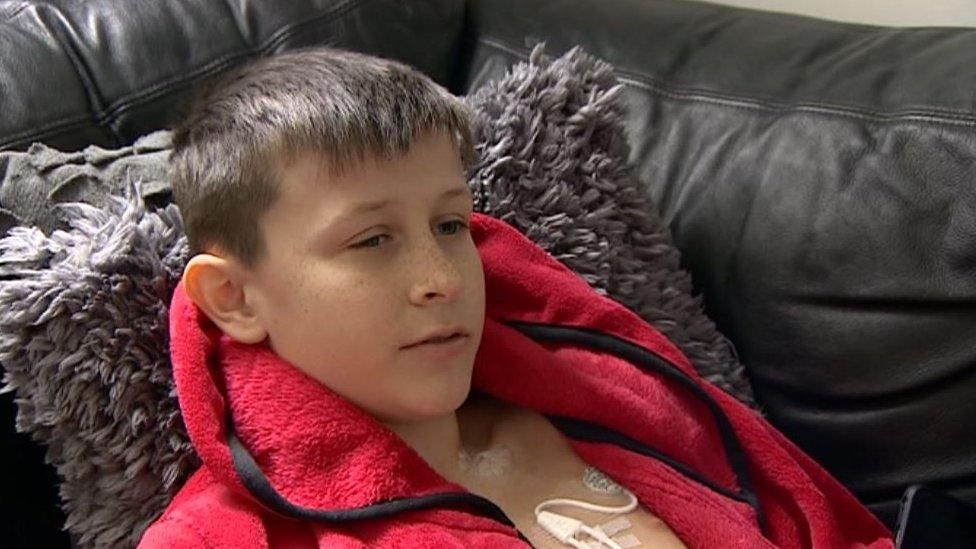
- Published19 August 2018
